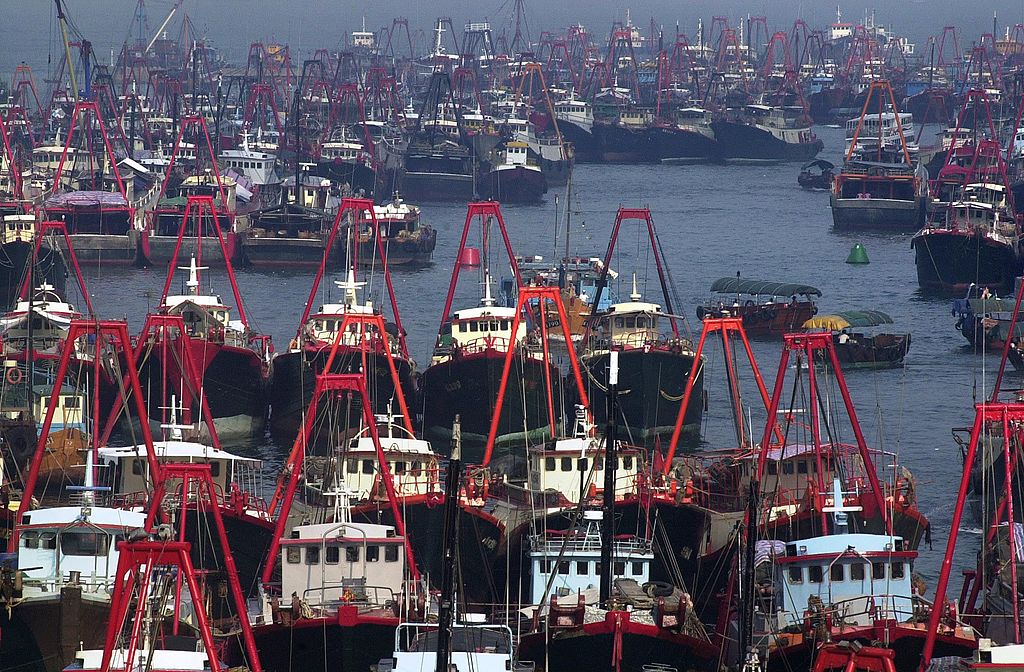ADF STAFF
From the coasts of Africa to South America, around the Indian Ocean and the South Pacific, China’s distant-water fleet (DWF) is steadily decimating fish stocks worldwide.
China’s bottom trawl fleet catches an estimated 2.35 million tons of fish per year around the African continent worth more than $5 billion, according to the Environmental Justice Foundation (EJF).
“That is huge chunks of money that can be ill afforded,” Steve Trent, EJF founder and CEO, told Financial Times. “The people that are affected, as is so often the case, are primarily the poor coastal communities. When the fish is gone, they don’t have alternative livelihoods, there’s no other means to feed their families.”
According to the U.S. Coast Guard, 93% of the world’s major marine fish stocks are classified as fully exploited, overexploited or significantly depleted.
Bottom trawling wrecks ecosystems that fish need to survive. The trawlers’ huge drift nets catch all manner of marine life. China is the world’s worst illegal, unreported and unregulated (IUU) fishing offender, according to the IUU Fishing Index.
“The impact of these drift nets is absolutely disastrous,” Vanya Vulperhorst, campaign director of illegal, unreported and unregulated fishing at Oceana Europe, told Wine and Water Watch, a nonprofit that promotes ethical water use. “They are indiscriminate in what they trap, and the result is that endangered and protected species are being killed in large numbers.”
China’s bottom trawl fleet activities in Africa account for 78.5% of its approved offshore fishery projects, the EJF gleaned from the Chinese Ministry of Agriculture and Rural Affairs data.
The DWF has targeted West Africa since the 1980s. Chinese bottom trawlers account for 50% of China’s total distant water catch, the EJF reported.
Illegal marine trade costs the region almost $1.95 billion across the fish value chain and $593 million per year in household income. IUU fishing also has been linked to other crimes such as piracy, kidnapping and drug trafficking.
China’s DWF, by far the world’s largest, routinely uses illegal gear, catches protected species and trawls in prohibited areas. It scours the world’s oceans because its own native species are severely overfished. In response, China has taken a hard-nosed approach to illegal fishing in its own waters.
In 2020, for example, the Chinese government imposed a strict 10-year fishing ban on the 6,300-kilometer-long Yangtze River to preserve native fish populations. The move was made in response to a significant drop in China’s domestic fish catch, which went from 7.65 million tons in 2017 to 6.82 million tons in 2019.
Whitley Saumweber, a professor of marine affairs and senior associate of the Asia Maritime Transparency Initiative, argued that China should adopt and fully enforce transparent, sustainable distant-water fishing practices to help preserve fish stocks around the globe.
“No one is going to successfully tell China what to do with their fleet,” Saumweber added in a report by Mongabay. “But if we can convince them that a commitment to transparency and global standards for sustainability are in their best interests, it would have a transformative effect on the global market and a cascading impact on the behavior of other fleets.”

